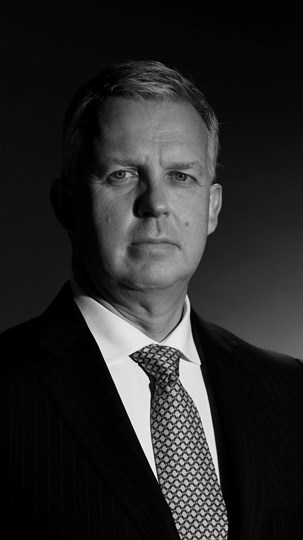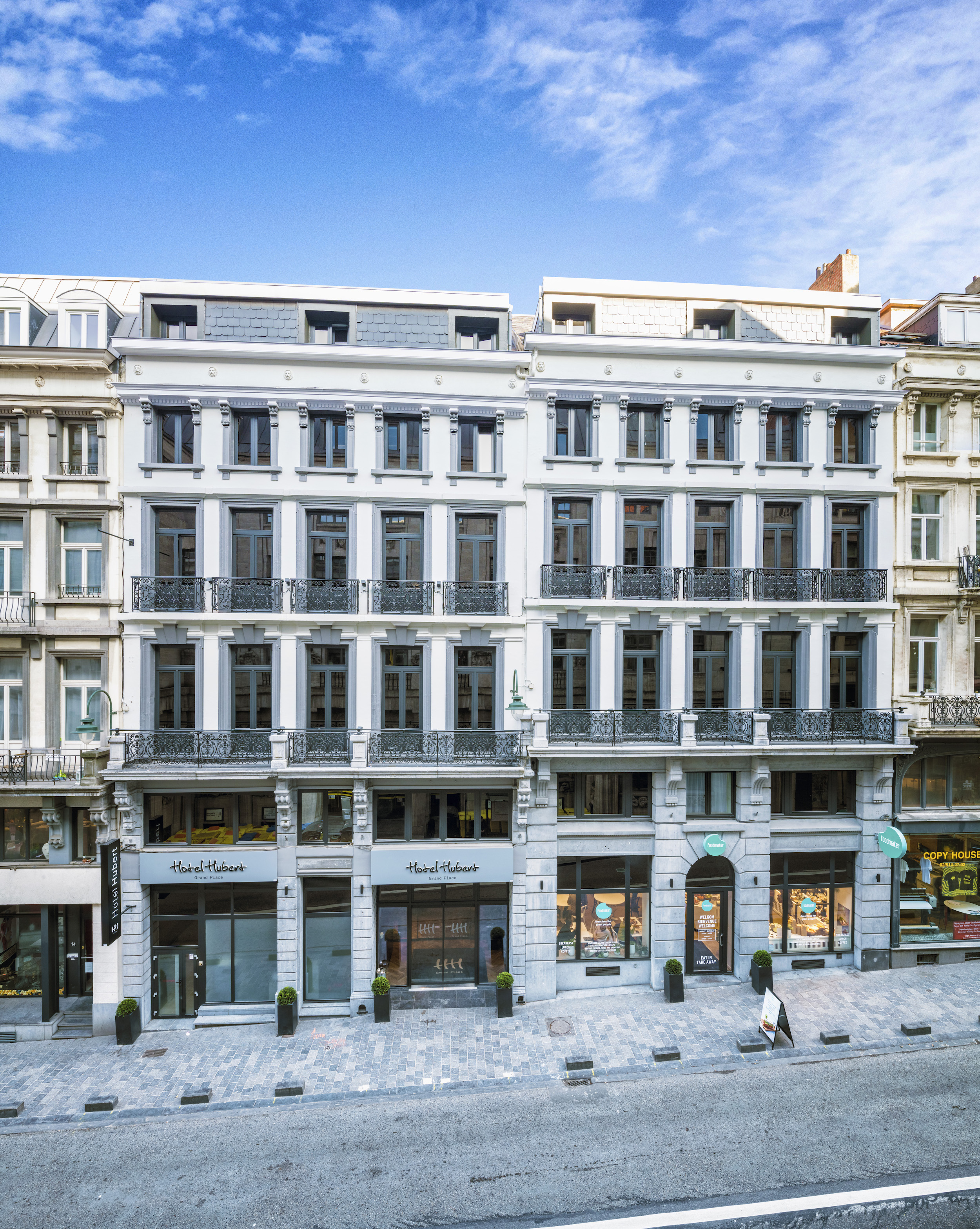In recent years, the hospitality industry – the hotel sector in particular – has been moving towards a more customer-centric approach, a movement accelerated by the COVID-19 pandemic. Gerald Lampaert, Hotelier himself and Strategic Advisor for Pandox hotels in Belgium, witnessed first-hand what major impact the pandemic has had on the hospitality business. “At Pandox we’re just glad we were already taking the first steps to migrate our IT infrastructure to LCL’s data center.”

“Hotels have to become more technology-friendly,” says Gerald Lampaert.
For over thirty years, Gerald Lampaert has worked in the hospitality industry. He has his own VERTU Hotels and Resorts firm, which provides development, management and consulting services to the hospitality industry. As a strategic consultant, Lampaert was taken aboard Pandox AB, a leading hotel owning company based in Sweden with 156 hotels with approximately 35,000 hotel rooms in 15 countries which they lease to hotel operators or manage themselves in some circumstances. Lampaert says that, at any given time, he is always wearing three hats: “One for the event and meeting industry, one for the hospitality industry as a whole and one for the technology side of these industries. I do not only understand how hotels operate but also know exactly what technology to adopt to support it.” From this position, he has seen the industry change over the years.
It’s no secret that the younger generations are more tech-savvy; they live the majority of their lives through the Smartphone they carry around in their pocket. “Thus, hotels have to become more technology-friendly,” says Gerald Lampaert. “Expectations have gone up. If customers are to be given the service they want and need, hotels have to keep pace.” Hotels also have to keep up with the competition. “There are more hotels than ever. What distinguishes you from the rest? It’s not the design, the bed or indoor restaurant. It’s the staff, the service and the comfort, ease and security you provide.”
The COVID-19 pandemic has accelerated the movement towards a customer-centric approach. “COVID has disrupted the industry significantly with visitor numbers decreasing dramatically.” However, Lampaert also sees opportunities. “We realized that mindsets are shifting. Guests are now also basing their decision on where it is safest to go.” And technology, Pandox figured, plays an important part in this. “Disinfecting is vital, but what if we avoid physical touchpoints altogether? What if your smartphone becomes your single point of contact? With this device, you can check in online before arrival, open your hotel door, browse the digital menu and order directly, and in some cases chat with a digital concierge. These details are important to guests nowadays and hence to Pandox as well.” But connecting a range of mobile devices to the hotel infrastructure and have it all run smoothly poses some challenges.
To run a hotel, you need certain strategic systems beside many others: one for welcoming guests, another for managing the building and yet another for the restaurant. “At Pandox, we own and run seven hotels in Belgium with an average of eight servers for every hotel to run all the requisite systems. If you wanted to upgrade or scale up your server room for future needs, you would have to expand your computer room, taking up valuable space. And even more importantly, every investment would have to be made seven times.”
Another challenge posed by an on-site IT infrastructure is maintenance. “A hotel is a 24/7 operation. If there is a problem with your IT systems overnight, you need someone to reboot or restore them straight away. Individual hotels don’t always have the luxury to do so, which means you can’t guarantee the continuity of the systems very quickly.”

With the challenges Pandox was facing – and with future developments in mind – Gerald Lampaert advised Pandox to redefine their technology, virtualizing and consolidating it as much as possible. “I compared the costs and added value of on-site hosting with those of outsourcing. It quickly became clear that the latter was the best option. Of course, the initial investment might be twice as high as improving the infrastructure in one of our hotels, but we have seven in Belgium. So, in the end, this was the most obvious and most economically viable choice.”
That made the decision for Lampaert a lot easier. He chose to invest in a new hardware environment installed in LCL’s data center in Diegem. “It’s a nice, centrally located facility. We didn’t have to rent a private room for our environment but could lease by the rack. Also, LCL is connected to many operators, including Orange, which is now the carrier for all our hotels in Belgium.” That’s why LCL was an easy choice, according to Lampaert. “At Pandox, we always work with people we trust. LCL is highly professional, fully customer-oriented and extremely responsive. They offer us capacity, flexibility, security and great service.”
Currently, about 60% of the business-critical technology hardware used by Belgian Pandox hotels is hosted in Diegem. The migration will be completed in the coming year. “Anything that can be remotely accessed will be moved to the data center. Property Management Systems, for example, do not have to be kept on-site. So why wouldn’t we want to relocate them? In a data center, your systems are located in a secured environment and everything gets backed up and monitored. Moreover, LCL offers 24/7 accessibility and proximity and a 'hands and eyes’ service. In other words, you don’t have to worry about anything”, Lampaert states.
He goes on to say that, besides peace of mind, this Information Technology migration also has long-term benefits. “Electricity consumption is a big expense for hotels. With our virtual servers in a data center, we will consume a lot less and lower our carbon footprint.” Another advantage is agility. “Since the migration, our capacity has been higher and through our internet carrier, LCL supplies the hotels with solid bandwidth. That’s why our administration staff can work from home without any issues.” The high connectivity also benefits guests. “Orange, one of the operators engaged by LCL, has set up a high-speed wide area network between the hotels. We now have 1 GB of connectivity for every hotel, 80% of which is dedicated to guest’s internet service. In the end, that’s all they want: great service, a comfortable bed, tasty coffee, a hot shower and, most importantly, a great internet connection.”
"The high connectivity also benefits guests"
Interested in collaborating with LCL to ensure the continuity of your IT infrastructure? Get in touch with one of our experts.